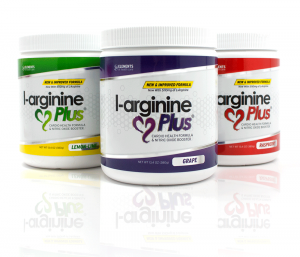Looking for ways to boost your health? If you want to improve your heart health, follow these guidelines for a healthier heart.
As the leading cause of death for men and women both in the U.S. and worldwide, it’s important to lower your risk of heart disease. There are a couple of things you can do to help reduce your chances of experiencing heart disease. The following are some helpful guidelines for a healthier heart that can help you improve your health.
Who is at risk?
 While anyone can get heart disease, your chances are higher if you have high cholesterol, high blood pressure, or diabetes. Your risk also goes up if you smoke, are overweight, live a sedentary life, and don’t have a healthy diet. Other important factors include your age and family history; for example, your risk is higher if you’re over 45 (men) or 55 (women).
While anyone can get heart disease, your chances are higher if you have high cholesterol, high blood pressure, or diabetes. Your risk also goes up if you smoke, are overweight, live a sedentary life, and don’t have a healthy diet. Other important factors include your age and family history; for example, your risk is higher if you’re over 45 (men) or 55 (women).
What is heart disease?
Heart disease generally refers to coronary heart disease (CHD), also known as coronary artery disease (CAD). It happens as a result of plaque buildup in the arteries, leading to blockages that reduce or stop circulation to the heart. This buildup may be due to high blood pressure (hypertension), too much fat and cholesterol in the blood, and more.
What is a heart attack?
The blockage in your arteries can reduce blood flow to the heart, resulting in a heart attack.
Common signs of a heart attack include breaking out in cold sweats, having stomach aches or heartburn, and chest pain. Moreover, you may experience dizziness, nausea, shortness of breath, and pain or discomfort in the upper body (arm, jaw, etc.).
Should I take my symptoms seriously?
While some heart attack symptoms happen suddenly, others develop slowly over time – sometimes even weeks in advance. It’s important that you talk to your doctor if you’re experiencing unusual chronic fatigue or have any new health problems. Furthermore, if you’ve already had a heart attack, keep in mind that symptoms of a new one may be different.
How can I control my blood pressure and cholesterol?
The first step in getting your blood pressure and cholesterol under control is to check them on a regular basis. Your doctor will tell you how often you need to measure them and give you guidelines on how to maintain them at healthy ranges. Generally, this will involve making lifestyle changes such as eating healthier and exercising regularly.
How do I take care of my heart health?
 In addition to managing your blood pressure and cholesterol and knowing your risk factors, there are other things you can do. For example, not only should you eat healthier and be physically active, but you should also avoid unhealthy habits.
In addition to managing your blood pressure and cholesterol and knowing your risk factors, there are other things you can do. For example, not only should you eat healthier and be physically active, but you should also avoid unhealthy habits.
These include smoking, drinking too much alcohol, eating processed foods, and leading a sedentary life. Furthermore, if you want to give your health an extra boost, you can take supplements like L-arginine Plus.
It contains ingredients that effectively promote better blood pressure, circulation, energy, and more. Give your heart health the support it needs and eat healthier, exercise regularly, and take L-arginine Plus.

